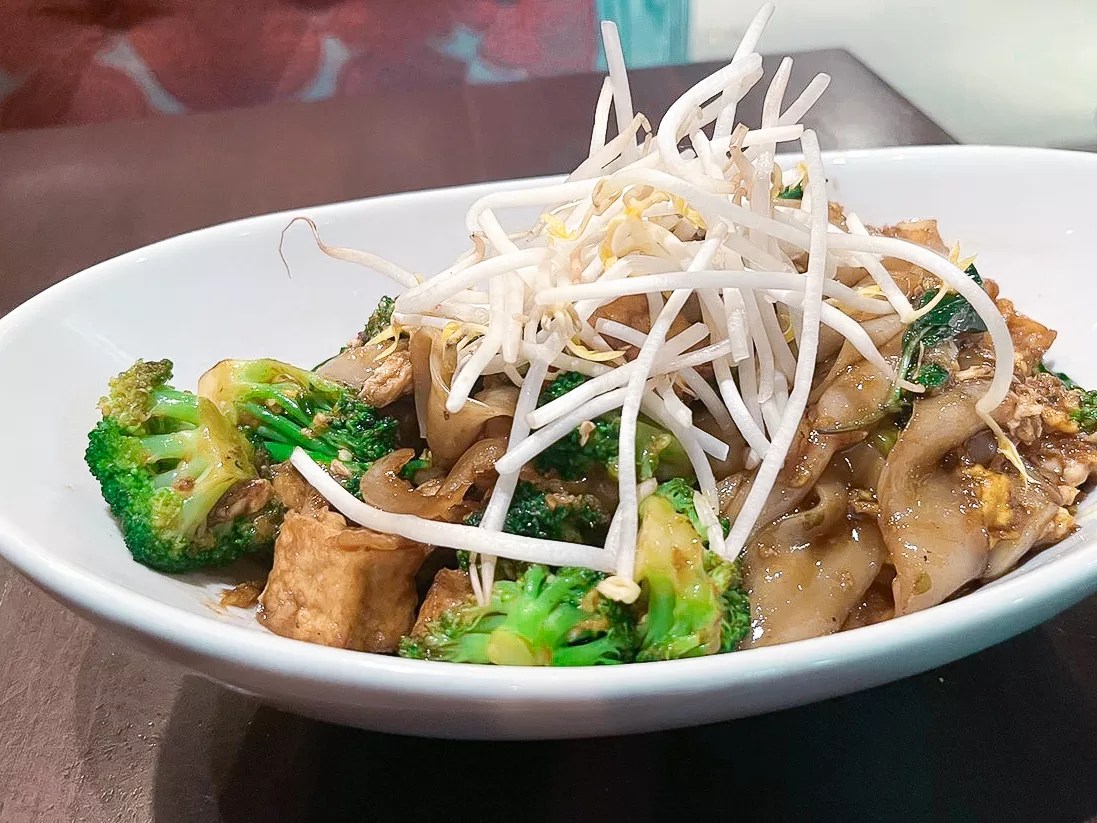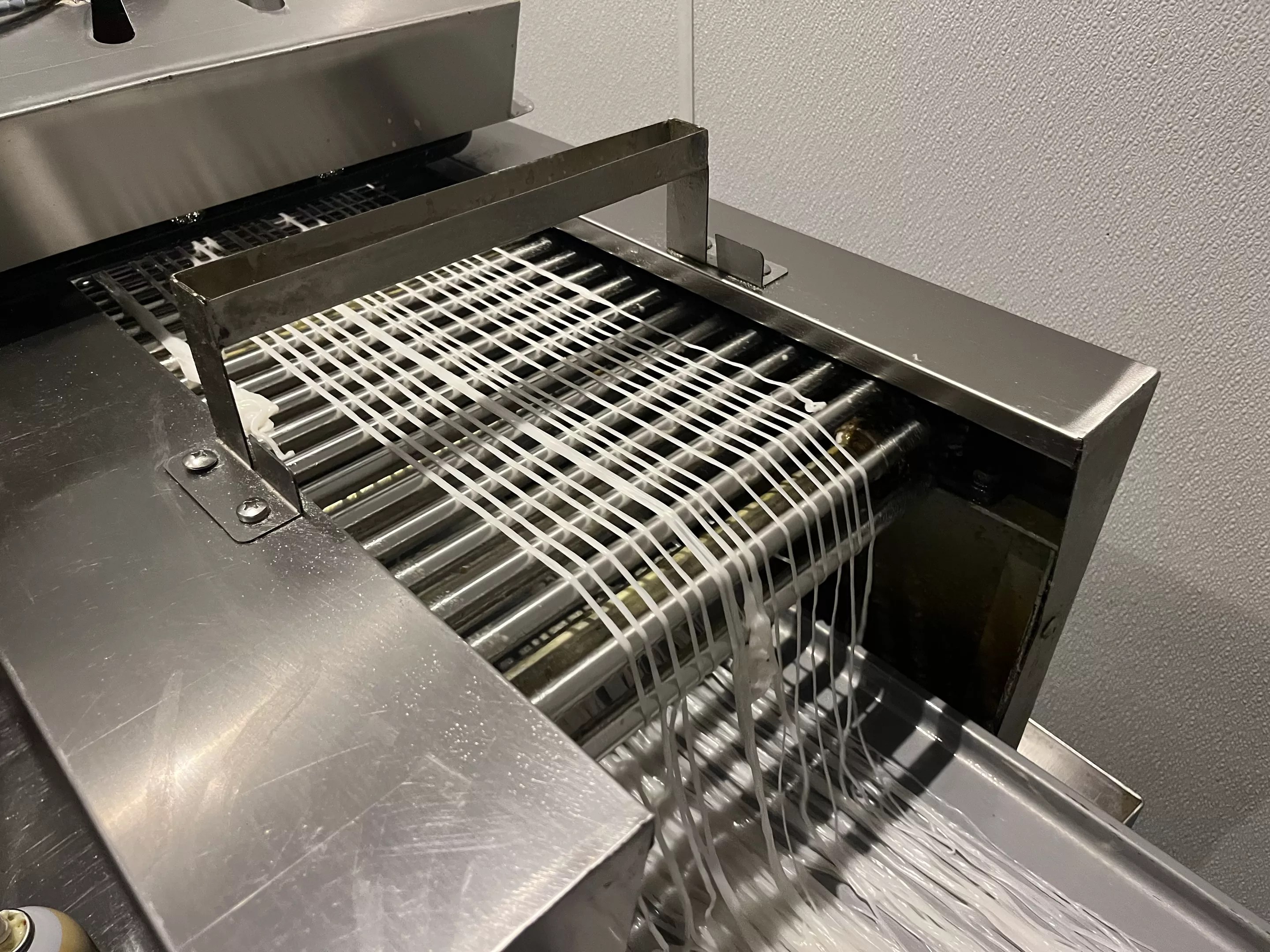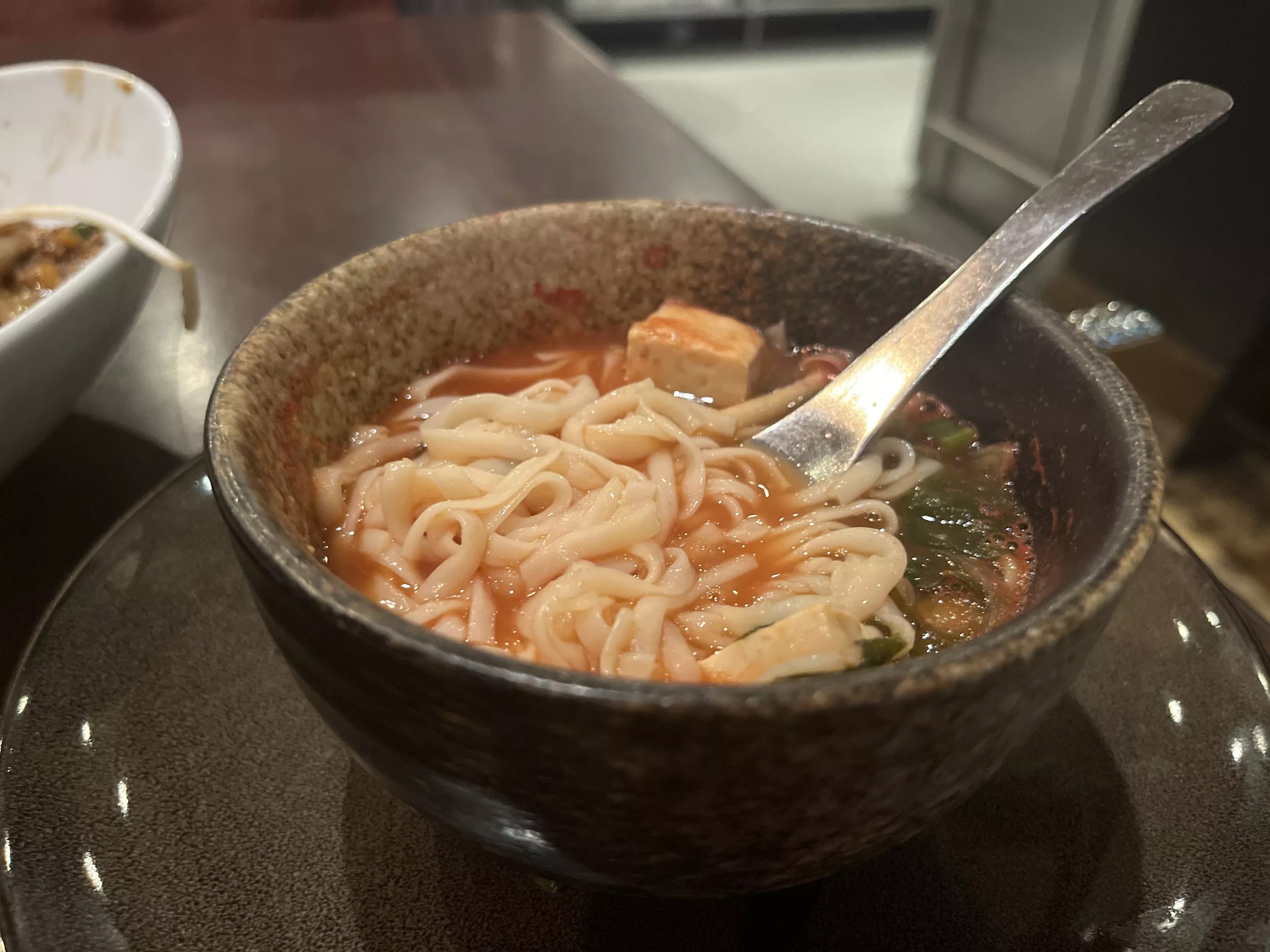
Anisha Holla

Audio By Carbonatix
Do a quick Google search for “best noodles in Dallas” and you’ll likely be directed to Malai Kitchen. Since 2011 this Thai and Vietnamese kitchen has been a local favorite. Husband and wife co-owners Braden and Yasmin Wages began their restaurant venture in Uptown and have since opened three more locations around North Texas. The thick, chewy, flavor-grabbing noodles were already some of the best in Dallas. But recently, they got an upgrade.
The couple says their noodle infatuation began with a trip to Southeast Asia more than a decade ago.
“We visited Hanoi, Vietnam, back in 2011 and were just enchanted by the flavorful noodles there,” Yasmin says. “That’s a caliber of noodle we’ve never really found in Dallas.”
They recently purchased a 388-pound noodle machine from Vietnam that presses and cuts the noodles in one streamlined process. Designed like a conveyor belt, the machine starts with a rice water batter, which it steams and presses into the desired noodle shape. After the noodles are cut and cooled, the result is an ultra-chewy and versatile noodle that can be cooked, fried or tossed in any of Malai’s signature noodle-based dishes.
“Noodle-making is such a precise and controlled process,” Yasmin says. “We’re so grateful to have the technology to be able to give us that same flavorful noodle we tasted 12 years ago.”

A 388-pound machine spits out thin, silky soup noodles.
Anisha Holla
Across four locations, Malai Kitchen prepares about 500 pounds of noodles each day. The bulk of daily noodle production will now be tasked to the machine.
“Our noodles are one of the most popular things on our menu,” Yasmin says. “The machine really helps us ramp up on production.”
Signature dishes like the wok-tossed drunken noodles and the chicken broth pho all incorporate Malai’s handmade noodles, which hit the heavenly sweet spot between chewy, silky and firm.
“They’re made of a rice flour imported straight from Vietnam,” Yasmin says. “That’s what gives them that wildly addicting texture.”
We made a visit to try the new-and-improved noodles ourselves. The machine didn’t disappoint.
The pad see ew or pad kee mow are both good places to start. Dig your fork into a mountain of chewy machine-made noodles soaked in a spicy or sweet soy sauce. Chopped tomatoes, onions, bell pepper or broccoli are generously tossed inside. While the flavors are rich, the noodle texture is what steals the show.

Fresh soup noodles float in a rich tomato-pineapple broth.
Anisha
The wide noodles in both dishes stretch to the piercing of the fork, delivering a satisfying chew. Equally addicting are the soup noodles, which are prepared the same way, but cut into thinner strips on the belt. Order them floating in a rich chicken broth or a sweet-and-sour pineapple-tomato soup.
The machine is housed at Malai’s new Preston Center location, and the noodles are shipped from there to each restaurant daily.